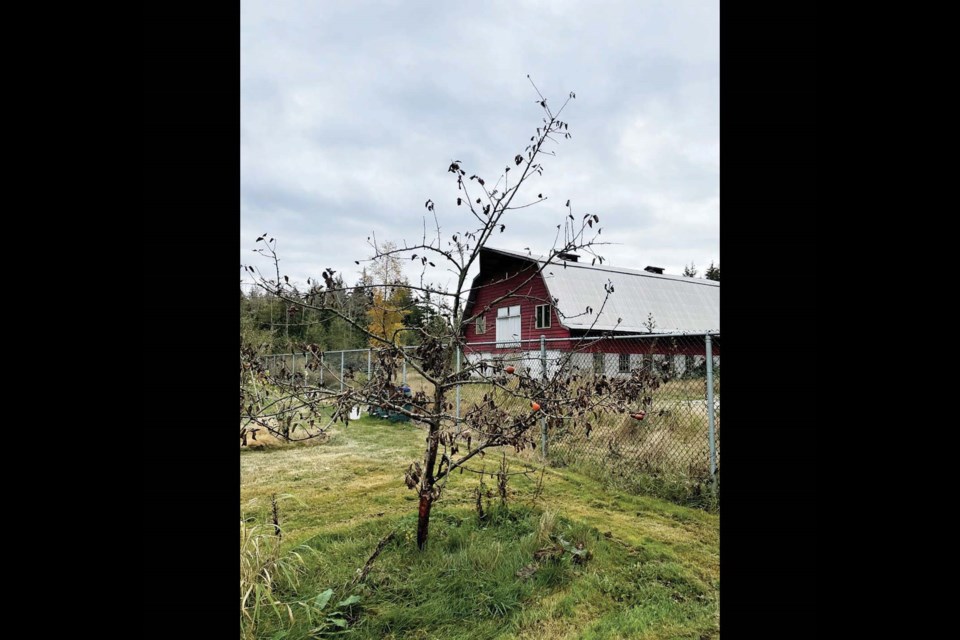Although it’s been done to death, I need to keep rehashing the whole state-of-emergency-water-thing until we have a tangible solution. I know, you’re thinking “Faye, it’s raining now, problem solved,” but the taps of local businesses that were cut off Oct. 18 do not magically get turned back on again just because we got a few puddles to jump in. We have a reservoir that needs to be refilled, and it could take a minute.
Two major businesses that were cut off in Area E were our incredible cideries. Did you know our little Elphinstone won two of the three “Best Cidery Of The Year” trophies in The Growler Craft Beer & Cider People’s Choice Awards? That’s right everyone, Area E brags the title Cider Capital of B.C., but they were both recently cut from production. I spoke with Banditry Cider and Sunday Cider to see what the long-term effects of the cut off means for them.
If you have ever been to Banditry Cider, located on Pratt Road in Area E, you will be familiar with their pond, which is home to a substantial population of friendly ducks. The reduction of water in the pond is a dramatic display of the drought. This new cidery has just won four Growlie awards, but since the state of local emergency declaration, they cut off all wholesale accounts, which took two years to build. “Cider is often an afterthought for most bartenders,” owner Jamie Armstrong told me, “so cutting them off means we will be replaced with someone else and we’ll have to start from scratch when we have inventory again.” It is a substantial part of Banditry’s income that would normally cover the cost of goods and wages of their core staff, locals employed year-round. They will be recuperating these costs for a long time. With more than 30 apple trees killed by drought this summer, and the plan to dig a second, deeper pond with a new irrigation system, Banditry Cider hopes for an expansion of grants from the government to help with mounting expenses. Armstrong is surprised the SCRD doesn’t have agriculture-specific storage for grey water in Elphinstone’s farming belt, like in other regions who struggle with water issues, which farms could access in emergencies.
Cidermaker Clinton McDougall at Sunday Cider made me realize, duh, that water is not an ingredient in cider like how beer is made. He explained that juicy apples contain the liquid, so an average day at the cidery is actually on par with average daily B.C. household water consumption. Neighbours have generously filled 1,000 litre totes up with well water for them so Sunday Cider can squeak by. Although they bring in lots of fruit from the Okanagan to meet the demands of their operation, the cut off still makes it feel like cidermaking “with one hand tied behind the back.” Their orchard was planted with environmental changes in mind, choosing root stocks to grow taller trees and deeper roots so they can practice dry farming right here on the Coast. McDougall said “I hope something like this, that affects small family-owned businesses, makes people take serious action on climate change on an individual level” which, if you’re optimistic, is probably the only silver lining to this very local disaster.
The community asked how they can help, and that’s the easy part for us; We just have to pop in and buy cider! Consider doing your Christmas shopping early and picking up some cider, a gift card, or trendy merch for your favourite people. Both cideries should have enough stock onsite to get them through the next few weeks. You are always welcome to bring a bucket of grey water to dump on a needy apple tree too.
I would love to hear feedback, take suggestions on topics in our neighbourhood, and hear from all 3,883 residents of Elphinstone. Email me at [email protected].




